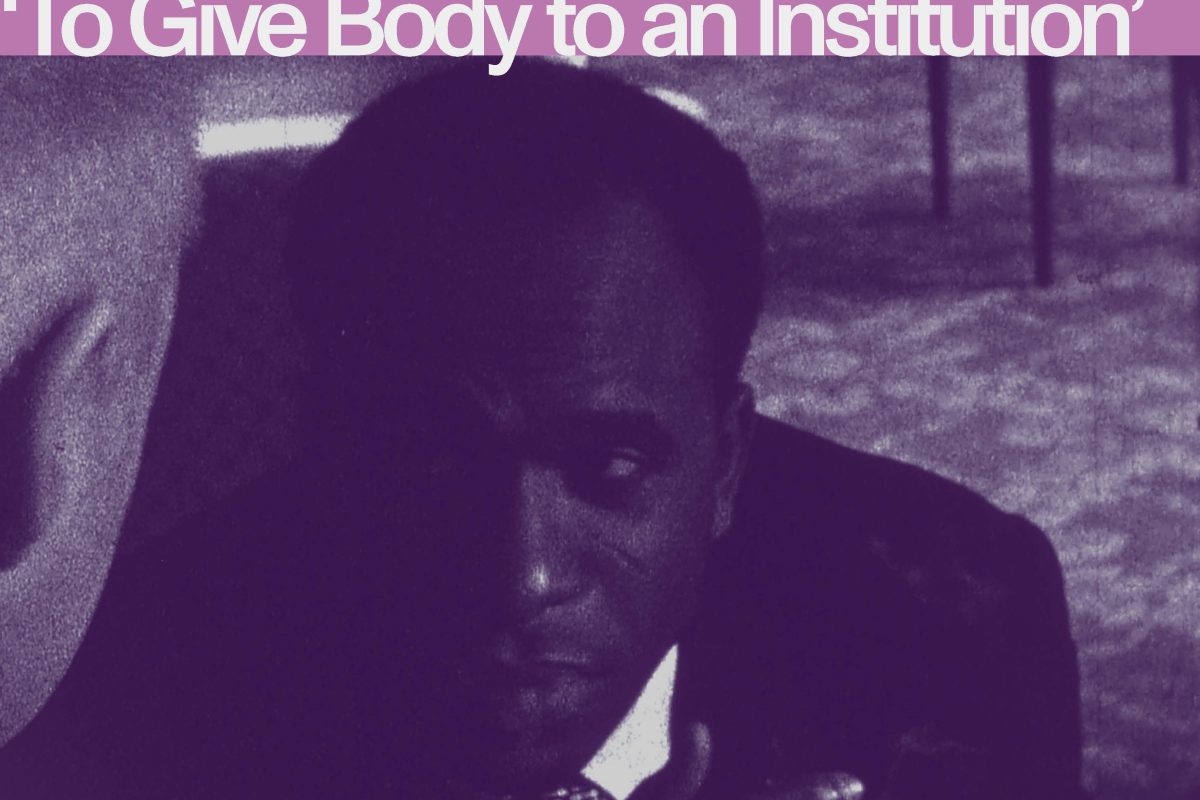Twitter users have been fretting over the platform’s imminent collapse for weeks. From posting last goodbyes, to releasing the hottest takes from drafts, and to migrating to a privacy-deficient Mastodon, Twitter’s death bells have been tolling since Elon Musk was forced to follow through with his acquisition of the platform. But Twitter refuses to die. The website has not yet crashed, despite constant warnings to the contrary, and Musk claims “record numbers” of logins.
But this does not mean that Twitter has not changed for the worse since Elon Musk took control. As with everything else that Musk touches, his artificially inflated entrepreneurial ego pushes him to wrestle control and attention away from people who know better. This happened with Tesla, which he claims as his own technological brainchild. But Musk was just an early investor who obtained the right to call himself “co-founder” through a 2009 settled suit. This happened with Hyperloop, Musk’s cartoonishly useless transportation concept, developed out of hatred of public transport and with disdain for urbanists. This famously happened in the case of the Thuam Lang cave rescue, with Musk slinging baseless accusations when the people who actually risked their lives saving the trapped children derided his ridiculous technophile “solutions.” And, of course, this happened in his very public private life, where his desire to be an “alpha” male has translated into misogynism and outright lies.
If Trump’s account has been unbanned, however, leftist users have been systematically taken off the platform. One case is that of the anarchist collective CrimethInc., whose account was suspended at the request of “far-right troll Andy Ngo.”
But there is more to it than that. If Musk were just your average frat boy or the edgy shitposter he tries so hard to be, he would warrant little attention. This is unfortunately not the case. Being one of the richest people in the world comes with certain advantages, including taking over gigantic companies whose services are used by millions and treating them as your private fief. Because, for better or for worse, Twitter has not only been a social media app. Activists are already mourning the platform’s value for organizing and connecting, while communities such as Black Twitter will be difficult to recreate somewhere else.
Musk, of course, ignores such “woke” concerns. “I am neither conventionally right nor left,” he recently tweeted. But, proving that anyone who says this is invariably on the right, he continued by writing that “The woke virus has thoroughly penetrated entertainment and is pushing civilization towards suicide.” The right does not, unfortunately, have a monopoly on anti-wokeness. Leftists often engage in such discourses themselves, even if their impulse might come from a different place. But, insofar as there is a bipartisan convergence on this matter, it is a convergence that leans right more than anything else.
Proof of this are the results of Musk’s anti-woke crusade. His takeover came with a promise of radical freedom of speech (a freedom that, incidentally, is not accorded to whistleblowers or critics against Musk’s companies). Musk used his acquisition of Twitter to join the ranks of conservative elites who attempt to create their own uncensored social media platforms. To those familiar with this discourse, it will be no surprise that free speech is just a thin cover for hate speech. Twitter’s safety and moderation policies have been weakened, while the teams have been reduced to below the bare minimum. The result: a surge in the tweeting of slurs.
Musk has not been content with simply letting this happen. Doubling down on his supposed centrism, he called on his “independent-minded” fellows to vote Republican just before the recent mid-term elections. And while he does not have the power to reinstate Donald Trump as president, he did reinstate his Twitter account a few days after Trump announced that he would run again in 2024. While this may not have been an explicit endorsement, it is a natural consequence of Musk’s own political trajectory. His supposedly bipartisan support in the United States has heavily skewed toward the Republican side, not only ideologically, but also financially.
If Trump’s account has been unbanned, however, leftist users have been systematically taken off the platform. Emboldened by Musk’s reactionary free-speech policies, right-wing activists and journalists have taken to pleading for the suspension of progressive accounts. And they have been successful. One case is that of the anarchist collective CrimethInc., whose account was suspended at the request of “far-right troll Andy Ngo.” These are not isolated events, but part of a coordinated alt-right campaign to ban progressives and accounts documenting right-wing violence and abuse.
This is the natural result of Musk’s class position, CrimethInc. write, as he is in that “part of the ruling class [that] has always aligned with the far right and fascists.” Indeed, it is not the first time that Musk has used social media policing to break down leftist organizing efforts. In 2017, Tesla employed a PR firm to surveil employees and organizers on Facebook amidst unionizing efforts. According to reports, the company monitored discussions about unfair labor practices and about increasing sexual harassment allegations at the company, triggered by a lawsuit. In 2021, Musk was ordered by the US National Labor Relations Board to delete a tweet in which he threatened workers who voted to unionize with taking away their stock options.
As IG Metall is making efforts to unionize Tesla’s Brandenburg base, Musk has been taunting United Autoworkers to try to come after the company in the US
Musk has not behaved any differently in his new playground. After his Twitter takeover, he treated his employees as if they were workers on his own domain. Musk swooped in with toxic demands and little respect for either the boundaries or expertise of the people who were already there. His infamous internal memo announcing an era of “extremely hardcore” performances has led to mass resignations, coming after Musk’s dismissal of half of Twitter’s workforce. But Musk seems untroubled, even proud, as he posts pictures of his now small team doing “code review” at 1:30 AM. This comes from a man who positively compared Chinese workers for “burning the 3am oil” with Americans who “are trying to avoid going to work at all,” leaving out the fact that workers at Tesla’s Shanghai factory are quite literally locked in and forced to sleep on the floor.
At least some of the remaining Twitter employees might also be prisoners, even if in a different way. While Musk’s memo invited those who did not want an extremely hardcore working life to quit, this is not an option available to all. Especially the almost 300 employees on H-1B visas cannot simply change their jobs with 24 hours’ notice, as they only have 60 days after their employment is terminated to find a new sponsor for their visa.
Musk’s disregard for workers’ safety and livelihoods is, of course, not new. Tesla employees are overworked and underpaid. They have to work through injuries, exhaustion, and health concerns, and this not only in the US. Authorities have recently found that the Brandenburg Tesla factory offered insufficient protection against harmful dust. Labor organizers, fortunately, have not left this unchallenged. As IG Metall is making efforts to unionize Tesla’s Brandenburg base, Musk has been taunting United Autoworkers to try to come after the company in the US, a challenge that they will hopefully accept. At SpaceX, another of Musk’s harmful pipedreams, former employees have sued for unlawful termination and age discrimination. And Twitter employees have also filed a class-action suit because of being fired without notice. All of this is happening in a moment where the tech industry seems to be in crisis.
So what happens now? As much as we might wish that the Twitter crisis is the last straw that breaks Musk’s grifting career, the past gives us no reason to be hopeful. Musk has made his money from an overvalued and underperforming car company and a transport system that does not even have a prototype anymore. But as these issues are more and more known to the general public, his hardcore fans are more and more embattled in their dedication to Musk’s genius.
The disastrous Twitter takeover might have given the lie to the myth of this genius. The rogue, smooth, and eccentric Silicon Valley genius, who can save the planet while making billions has been replaced by a bitter, power-hungry man who will abuse his position to soothe a bruised ego. But even staff writers at The Atlantic welcome this as refreshing honesty, “preferable to Silicon Valley hypocrisy” and to fake ambitions of changing the world.
But the ambitions to change the world are still there, only not dressed up as for the benefit of all anymore. As the “empty dreams” he sells become more obviously empty, the illusion wears away and Musk leans into the alt-right radicalization that he and his followers promote. His crackdown against leftist organizers on Twitter joins his anti-union track record to make his class politics obvious to anyone who cares to look. His open collaboration with alt-right agitators lays his final cards on the table. Twitter might collapse, and then this episode might soon be over. But what if it does not? If this is a success for Musk, it is a success for the new, openly reactionary tech capitalist that is being born from the current crisis.




